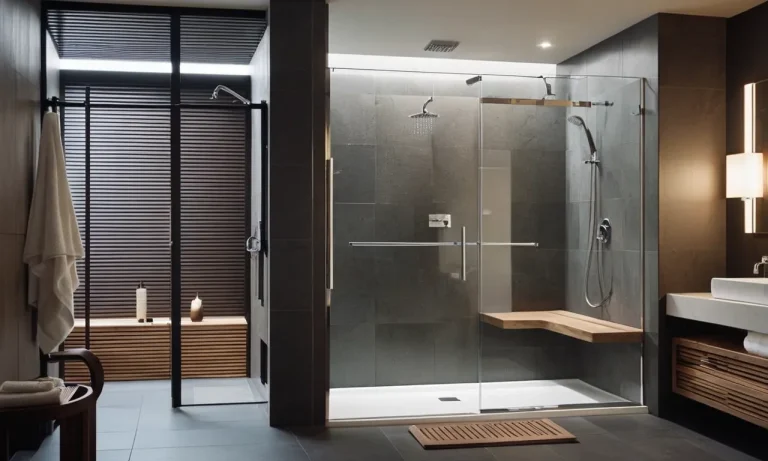Difference Between Hotel and Bed and Breakfast: A Comprehensive Guide
When it comes to accommodations, the choice between a hotel and a bed and breakfast can make a significant difference in your overall experience. Whether you’re planning a romantic getaway, a family vacation, or a business trip, understanding the nuances between these two types of lodging can help you make an informed decision.
If you’re short on time, here’s a quick answer to your question: Hotels are typically larger establishments that offer a wide range of amenities and services, while bed and breakfasts are smaller, more intimate properties that provide a more personalized and homely experience.
In this comprehensive guide, we’ll delve into the key differences between hotels and bed and breakfasts, exploring factors such as size, ambiance, amenities, services, and pricing. By the end, you’ll have a clear understanding of which option best suits your needs and preferences.
Size and Scale
Hotels: Large-Scale Operations
When it comes to size and scale, hotels are undoubtedly the giants in the hospitality industry. These establishments are typically large, often featuring hundreds or even thousands of rooms spread across multiple floors or buildings.
From towering skyscrapers in bustling cities to sprawling resorts in tropical paradises, hotels cater to a wide range of travelers, offering a vast array of amenities and services.
One of the defining characteristics of hotels is their ability to accommodate large numbers of guests simultaneously. This is made possible by their extensive infrastructure, including spacious lobbies, multiple restaurants and bars, conference facilities, fitness centers, swimming pools, and more.
Hotels are designed to provide a comprehensive and convenient experience for their guests, catering to both leisure and business travelers.
According to Statista, the largest hotel chain in the world, Marriott International, operates over 7,000 properties across 131 countries and territories as of 2022. This staggering scale demonstrates the global reach and influence of major hotel chains, which often employ thousands of staff members to ensure smooth operations and exceptional service.
Bed and Breakfasts: Intimate and Cozy
In stark contrast to the grand scale of hotels, bed and breakfasts (B&Bs) offer a more intimate and cozy experience. These charming establishments are typically small, family-owned businesses that provide a warm and welcoming atmosphere for travelers seeking a more personalized touch.
Bed and breakfasts are known for their unique character and attention to detail. Many are housed in historic homes, inns, or converted mansions, adding a sense of charm and nostalgia to the guest experience.
With a limited number of rooms, often ranging from just a few to a dozen or so, B&Bs offer a more exclusive and private setting than their larger counterparts.
One of the hallmarks of a bed and breakfast is the opportunity to connect with the owners or innkeepers, who often take pride in sharing local knowledge and recommendations with their guests. This personal touch, combined with the homey ambiance and delicious homemade breakfasts, creates a truly memorable experience that many travelers cherish as a way to immerse themselves in the local culture and hospitality.
According to the American Hotel & Lodging Association, there are approximately 17,000 bed and breakfast inns operating in the United States alone. While smaller in scale compared to hotels, B&Bs offer a unique and authentic alternative that appeals to travelers seeking a more intimate and personalized lodging experience.
Whether you prefer the grandeur and amenities of a large hotel or the coziness and charm of a bed and breakfast, both options have their unique charms and cater to different travel preferences. The choice ultimately comes down to the type of experience you’re seeking and the level of personalized service and local immersion you desire.
Ambiance and Atmosphere
Hotels: Standardized and Professional
Hotels are renowned for their consistent and professional ambiance, meticulously designed to cater to a wide range of guests. From the moment you step into the lobby, you’re greeted with a polished and sophisticated atmosphere that exudes a sense of luxury.
The decor is often sleek and modern, adhering to the brand’s standards across multiple locations.
According to a survey by Hotel Management, 87% of travelers rated the ambiance and atmosphere as a crucial factor in their hotel selection process. Hotels strive to create a serene and comfortable environment, where guests can unwind and enjoy their stay.
The professional staff, trained in hospitality etiquette, ensures a seamless and attentive service, contributing to the overall ambiance.
Furthermore, hotels often boast a range of amenities and facilities that enhance the guest experience. From well-appointed fitness centers to inviting pools and spas, these offerings add to the overall ambiance and provide opportunities for relaxation and rejuvenation.
The standardized nature of hotels allows for a consistent and predictable experience, making them a popular choice for business travelers and those seeking a reliable and familiar atmosphere.
Bed and Breakfasts: Unique and Personalized
In contrast to hotels, bed and breakfasts (B&Bs) offer a unique and personalized ambiance that celebrates individuality and charm. These intimate establishments are often housed in historic buildings, Victorian-era homes, or quaint cottages, each with its own distinctive character and story to tell.
The atmosphere is warm, inviting, and often feels like a home away from home.
According to a survey by BedandBreakfast.com, 92% of guests cited the unique ambiance as the primary reason for choosing a B&B over a traditional hotel. B&Bs pride themselves on creating a cozy and welcoming environment, where guests can truly immerse themselves in the local culture and experience a personalized level of service.
The owners or innkeepers of B&Bs play a pivotal role in shaping the ambiance, infusing their own personal touches and hospitality into every aspect of the stay. From homemade breakfasts featuring local ingredients to thoughtfully curated decor and furnishings, each B&B offers a one-of-a-kind experience.
Guests often form connections with the innkeepers, who share stories and insights about the area, adding an authentic and memorable touch to their visit.
Whether you prefer the standardized professionalism of hotels or the unique charm of bed and breakfasts, the ambiance and atmosphere play a significant role in shaping your overall experience. While hotels offer a consistent and luxurious ambiance, B&Bs provide a personalized and immersive atmosphere that celebrates local character and hospitality.
Ultimately, the choice between the two depends on your individual preferences and the type of experience you seek.
Amenities and Services
Hotels: Comprehensive Offerings
When it comes to amenities and services, hotels often stand out with their extensive offerings. From luxurious spas and state-of-the-art fitness centers to multiple on-site dining options and 24/7 room service, hotels cater to a wide range of guest needs.
Many hotels also provide business centers, meeting rooms, and event spaces, making them a popular choice for corporate travelers and conferences. Additionally, hotels typically offer concierge services to assist guests with everything from restaurant reservations to tour bookings.
According to a Statista survey, the top three most important hotel amenities for guests are free Wi-Fi (89%), free parking (88%), and a complimentary breakfast (86%). Hotels have recognized these preferences and often include them in their offerings.
Furthermore, many hotels have embraced sustainability initiatives, such as energy-efficient practices and eco-friendly amenities, appealing to environmentally conscious travelers.
Bed and Breakfasts: Tailored Experiences
While bed and breakfasts (B&Bs) may not match the extensive amenities of hotels, they offer a more intimate and personalized experience. B&Bs typically provide a cozy atmosphere with a limited number of rooms, allowing for more attentive service from the hosts.
One of the standout features of B&Bs is the homemade breakfast, often prepared with locally sourced ingredients and served in a communal dining area, fostering a sense of community among guests.
B&Bs often cater to specific interests or themes, such as romantic getaways, culinary adventures, or outdoor activities. Many B&Bs offer unique experiences like cooking classes, wine tastings, or guided tours of the local area, allowing guests to immerse themselves in the local culture and traditions. While amenities like spas or fitness centers may not be as common, some B&Bs provide access to nearby facilities or offer in-room massages or yoga classes upon request.
According to a study by BedandBreakfast.com, 83% of B&B guests cited the “personal touch” as the primary reason for choosing a B&B over a hotel. This personalized service and attention to detail are hallmarks of the B&B experience, catering to travelers seeking a more intimate and authentic stay.
| Amenities/Services | Hotels | Bed and Breakfasts |
|---|---|---|
| Dining Options | Multiple on-site restaurants, room service | Homemade breakfast, occasional cooking classes |
| Recreational Facilities | Pools, spas, fitness centers | Limited, may offer access to nearby facilities |
| Business Services | Business centers, meeting rooms, event spaces | Limited, focused on leisure travel |
| Personalized Service | Concierge services, limited personal touch | Intimate, tailored experiences with personal touch |
Pricing and Value
Hotels: Varying Price Points
When it comes to hotels, pricing can vary significantly based on factors such as location, brand, amenities, and seasonality. From budget-friendly options to luxurious five-star resorts, there’s a hotel to suit every traveler’s budget and preferences.
According to Statista, the average daily rate for hotels worldwide was around $113 in 2021. However, this figure can range from as low as $50 for a basic hotel room in a less popular destination to well over $1,000 for a suite at a high-end hotel in a major city like New York or Dubai.
Despite the wide range of prices, hotels often offer value-added services and amenities that justify their rates. Many hotels provide complimentary breakfast, fitness centers, swimming pools, and concierge services.
Business travelers may appreciate the convenience of on-site meeting rooms and high-speed internet access. Additionally, hotels typically offer loyalty programs that reward frequent guests with discounts, upgrades, and other perks.
These added benefits can make hotels a worthwhile investment for travelers seeking a comprehensive and convenient experience.
Bed and Breakfasts: Affordable Luxury
Bed and breakfasts (B&Bs) offer a unique and often more affordable alternative to traditional hotels. These intimate establishments, typically run by owners or innkeepers, provide a cozy and personalized experience that can’t be found in larger hotels.
According to BedandBreakfast.com, the average nightly rate for a B&B in the United States was around $160 in 2021, which is generally lower than the rates of upscale hotels.
Despite their lower price point, B&Bs often deliver a luxurious experience with high-end amenities and exceptional service. Many B&Bs offer gourmet breakfasts, beautifully appointed rooms, and charming common areas that foster a sense of community among guests.
Additionally, B&B owners and innkeepers are known for their warm hospitality and insider knowledge of the local area, providing guests with personalized recommendations and insights that enhance their overall experience.
| Feature | Hotels | Bed and Breakfasts |
|---|---|---|
| Price Range | Varies widely, from budget to luxury | Generally more affordable than upscale hotels |
| Amenities | Fitness centers, pools, meeting rooms, etc. | Gourmet breakfasts, cozy common areas |
| Service | Professional, but often impersonal | Personalized, with insider local knowledge |
Choosing the Right Accommodation
When planning a trip, choosing the right accommodation is crucial for a comfortable and enjoyable stay. Whether you opt for a hotel or a bed and breakfast (B&B), each option offers unique advantages and experiences.
To make an informed decision, it’s essential to consider various factors that align with your travel preferences and needs.
Factors to Consider
- Budget: Hotels often have a wider range of pricing options, from budget-friendly to luxury, while B&Bs typically offer a more intimate and personalized experience at a moderate cost.
- Location: Hotels are usually located in urban areas or near major attractions, while B&Bs tend to be situated in residential neighborhoods or scenic areas, providing a more immersive local experience.
- Amenities: Hotels generally offer a broader range of amenities, such as fitness centers, spas, restaurants, and business facilities, while B&Bs may have more limited but personalized services.
- Privacy: Hotels offer more privacy and anonymity, while B&Bs often have a more social and interactive atmosphere with the hosts and other guests.
- Atmosphere: Hotels typically have a more formal and standardized environment, while B&Bs provide a cozy, homely ambiance with unique decor and personal touches.
When to Choose a Hotel
Hotels are an excellent choice for travelers seeking convenience, a wide range of amenities, and consistent service standards. They are ideal for business trips, conferences, or vacations where you prioritize accessibility to urban attractions or nightlife.
According to a Statista report, the hotel industry’s market size is projected to reach $1.1 trillion by 2027, indicating its enduring popularity among travelers.
If you’re looking for a more traditional and standardized experience, with a variety of on-site facilities and services, a hotel may be the perfect fit.
When to Choose a Bed and Breakfast
Bed and breakfasts are an excellent option for travelers seeking a more personalized and intimate experience. They are perfect for romantic getaways, family vacations, or trips where you want to immerse yourself in the local culture and community.
According to a survey by BedandBreakfast.com, over 80% of B&B guests rate their experience as “excellent” or “very good,” highlighting the high level of satisfaction with this type of accommodation.
If you’re seeking a unique and cozy atmosphere, with a chance to connect with locals and fellow travelers, a bed and breakfast could be the ideal choice for your next adventure.
Ultimately, the decision between a hotel and a bed and breakfast comes down to your personal preferences, travel goals, and the overall experience you’re seeking. By carefully considering the factors mentioned above, you can make an informed choice that aligns with your needs and ensures a memorable and enjoyable stay.
😊
Conclusion
The choice between a hotel and a bed and breakfast ultimately comes down to your personal preferences, travel needs, and budget. While hotels offer a more standardized and comprehensive experience, bed and breakfasts provide a unique and personalized touch that can make your stay truly memorable.
Whether you’re seeking the convenience and amenities of a hotel or the charm and intimacy of a bed and breakfast, understanding the key differences between these two types of accommodations will help you make an informed decision that aligns with your travel goals and expectations.
Regardless of your choice, the most important thing is to find a place that makes you feel comfortable, relaxed, and ready to embrace the adventures that lie ahead.






